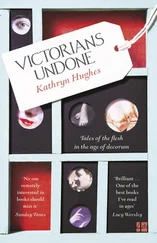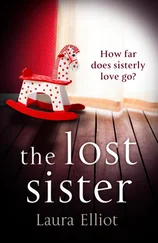Christmas Day 1841 passed off unremarkably at Bird Grove. Fanny and Henry Houghton, Chrissey and Edward Clarke, Isaac and Sarah Evans, all came to dine at Foleshill. Two days later Robert Evans left on a business trip to Kirk Hallam, while Maria Lewis went to Nuneaton to look over a school she was hoping to run. Both of them had returned by Sunday, 2 January, the day on which Mary Ann refused to go to Trinity church. 38 She may have waited to make her stand until Maria was there because she wanted a buffer between herself and her father. Or perhaps she needed the woman who had shaped her earliest beliefs to witness their rejection. Either way, this was no momentary faltering of faith. A fortnight later, with Maria Lewis now gone, she was still refusing to accompany her father to church.
Robert Evans’s response was to withdraw into a cold and sullen rage. It was not the state of Mary Ann’s soul that troubled him so much as the social disgrace that came from having a daughter who refused to go to church. He had gone to considerable trouble and expense to ensure that she was given the best possible chance of marriage and here she was, undermining his efforts. He would, in truth, probably have been delighted if she had eased up on the fanatical religiosity which was in danger of repelling all but the most pious suitor. But to swing violently the other way and reject church worship altogether was to put herself outside respectable society. By refusing to accompany him to Trinity Mary Ann was condemning herself to spinsterhood.
In this ‘holy war’, as Mary Ann was to dub the difficult weeks that followed, God, housing and marriage were all tangled up together. The roots of the crisis went back to those ten uncertain months during which it was unclear whether Isaac would marry and take over Griff. Although Mary Ann’s letters to Maria during that time cast Isaac obliquely in the role of prevaricator, it is unlikely that a young man of twenty-five was powerful enough to hold the whole family to ransom. It was the old man himself, Robert Evans, who could not decide whether this was the time to hand over the business and, if so, where he and Mary Ann would now live. Staying at Griff, moving in with Chrissey at Meriden, going to a cottage on Lord Aylesford’s Packington estate, or opting for a smart town house in Coventry were all possibilities over which Evans pondered. And it was during this stop-start, yes-no period that Mary Ann was brought up sharp against the realisation that as an unmarried woman she had no power to shape her own life. It was her job to endure while Evans dithered, delayed and distracted himself from giving her a clear indication about the future.
When Mary Ann refused to go to Trinity with Robert Evans, she was rejecting not just her Heavenly Father but her earthly one too. The God who had tied her in self-denying, guilt-ridden knots for so many years had become identified with the patriarchal Evans, who remained indifferent to her emotional security and peace of mind. Rejecting an orthodox God was not simply about being up to date with theological and scientific debate. Nor was it concerned solely with asserting the primacy of individual conscience. It was, for Mary Ann, a refusal to be tied into a nexus of obligations that required her to attend church in order to get herself married and so relieve her father of the cost of her support.
As a result, the holy war was fought on two distinct levels. Evangelical and dissenting friends like the Sibrees, the Franklins and Mrs Pears fielded their most persuasive and sophisticated acquaintances in an attempt to argue Mary Ann out of her doubts. Within the Evans family itself, however, the struggle concerned more practical issues like daughterly duty, bricks and mortar, money and marriage. Robert Evans’s first response was to treat Mary Ann with ‘blank silence and cold reserve’ – a literal sending to Coventry – followed by ‘ cooled glances, and exhortations to the suppression of self-conceit’. 39 When this didn’t work, Evans called upon his other children to persuade their younger sister to change her mind. Fanny Houghton, a well-read woman who also had doubts about orthodox Christianity, urged Mary Ann to keep her thoughts to herself and continue with outward observance. 40 Chrissey had no particular argument to make, but was requested to keep Mary Ann out of Robert’s way by having her to stay at Meriden. It was during these few days that Isaac rode over from Griff to ‘school’ Mary Ann about where her duty lay. According to Isaac the expensive house at Foleshill had been taken in order to find Mary Ann a husband. Wilfully to put herself outside the marriage market by refusing to go to church was an act of great financial selfishness. Cara Bray, reporting the whole saga to her sister Sara Hennell, explained:
It seems that brother Isaac with real fraternal kindness thinks that his sister has no chance of getting the one thing needful – ie a husband and a settlement, unless she mixes more in society, and complains that since she has known us she has hardly been anywhere else; that Mr Bray, being only a leader of mobs, can only introduce her to Chartists and Radicals, and that such only will ever fall in love with her if she does not belong to the Church. 41
As if to confirm the truth of this pounds-shillings-and-pence argument, Robert Evans arranged to give up the lease of Bird Grove and set about preparing to move to a small cottage on Lord Aylesford’s estate. True to form, he would not make it clear whether or not he expected Mary Ann to come with him. This frustrating silence continued even once she had returned from Meriden to Foleshill at the end of February.
In a desperate attempt to provoke her father into communication, Mary Ann wrote him a letter, the only one to him which survives. It is an extraordinary document for a girl of twenty-two to write – intellectually cogent, emotionally powerful. She starts by making clear the grounds for her rebellion. She assures him that she has not, contrary to his fears, become a Unitarian. Nor is she rejecting God, simply claiming the right to seek Him without the clutter of man-made dogma and doctrine. As far as the Bible is concerned, ‘I regard these writings as histories consisting of mingled truth and fiction, and while I admire and cherish much of what I believe to have been the moral teaching of Jesus himself, I consider the system of doctrines built upon the facts of his life … to be most dishonourable to God and most pernicious in its influence on individual and social happiness.’ For this reason, continues Mary Ann, it would be impossible for her ‘to join in worship which I wholly disapprove’ simply for the sake of social appearance. She then proceeds to discuss the vexed issue of ‘my supposed interests’ and the financial aspects of the case. She understands that now she has put herself beyond the reach of respectable society, it is unfair to expect her father to maintain the expensive Coventry house. The last thing she wants is to syphon off capital which will eventually be divided among all five Evans children. Then she turns to the question of where she is to go next.
I should be just as happy living with you at your cottage at Packington or any where else if I can thereby minister in the least to your comfort – of course unless that were the case I must prefer to rely on my own energies and resources feeble as they are – I fear nothing but voluntarily leaving you. I can cheerfully do it if you desire it and shall go with deep gratitude for all the tenderness and rich kindness you have never been tired of shewing me. So far from complaining I shall joyfully submit if as a proper punishment for the pain I have most unintentionally given you, you determine to appropriate any provision you may have intended to make for my future support to your other children whom you may consider more deserving.
Читать дальше












